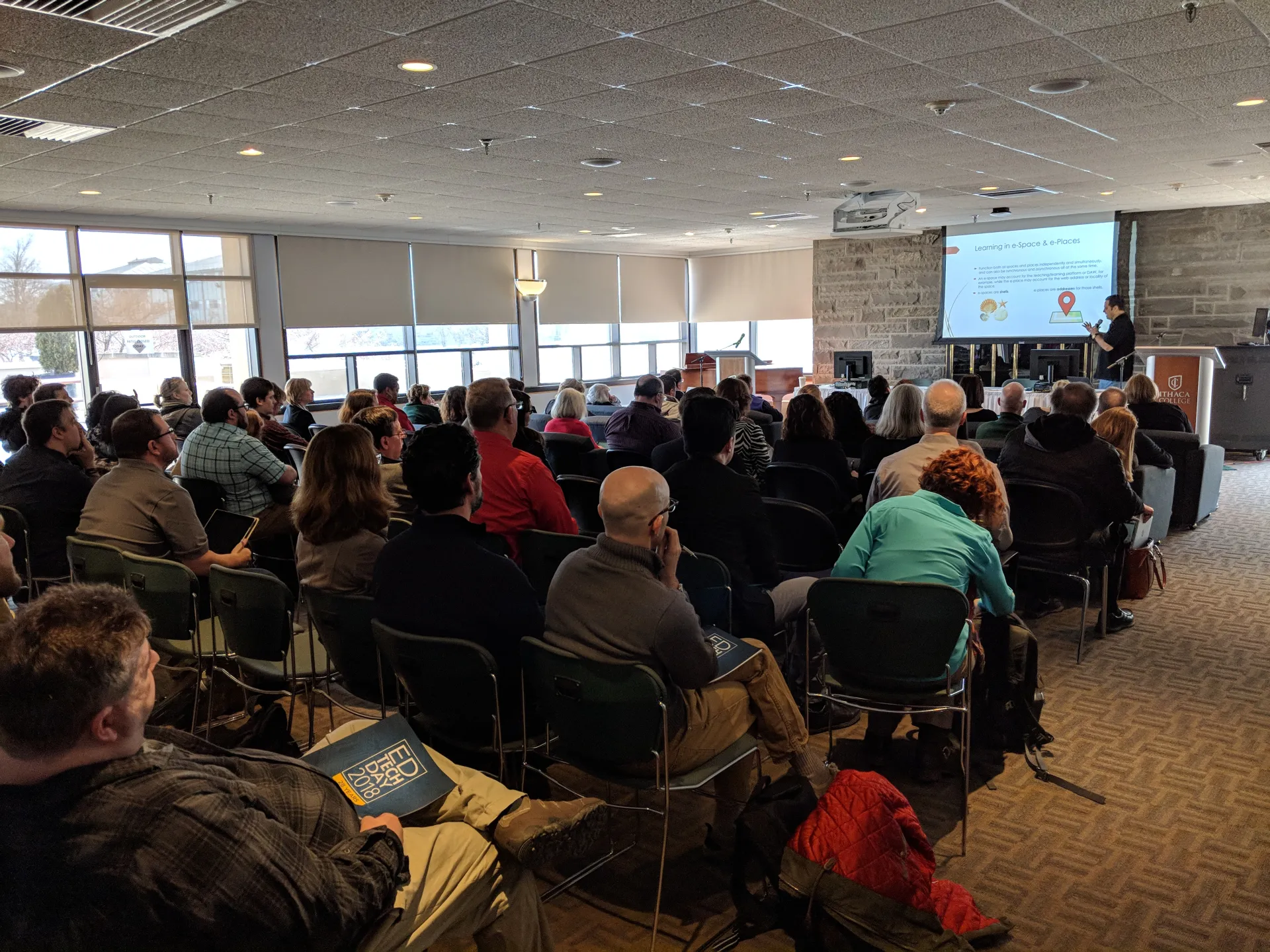Here are just a few of the 50+ Presentations that will happen throughout the event! Keep checking back for more.
“Delivering a World-Class Customer Experience: Lessons from the Mouse” Participants will learn:
|
"Lower Access Barriers from the Back End to the End User"
|
“Building AI Literacy with Intention, Ethics, and Humanity” This session explores how AI in education has moved from fear and avoidance to purposeful, responsible integration. Participants will discuss key considerations, including data privacy, ethical use, age-appropriate access, transparency over surveillance, and the importance of building skills rather than replacing learning opportunities. The session also highlights why AI literacy must include human skills such as judgment, empathy, reflection, and discernment, as well as focusing on digital citizenship and digital wellness. |
"Learning and working with AI: Thinking still required" As generative AI becomes increasingly present in classrooms and workplaces, educators and professionals often feel caught between reactive policies and tool-focused adoption. This session invites a different conversation, one centered on how AI can be used strategically to support learning rather than replace thinking. Drawing on ideas from Learning with AI: The K–12 Teacher’s Guide to a New Era of Human Learning, this session explores using AI as an assistant who is capable of bringing the learning process into the open. When AI is used to generate drafts, offer explanations, or assert alternative arguments, learners have opportunities to examine, question, and revise their own thinking in individualized contexts. This makes it easier for learners to reflect on how they reason, recognize gaps in their understanding, and develop stronger judgment and more complete ways of knowing over time. Through guided reflection and discussion, participants from K–12 education, higher education, and professional settings will explore practical, human-centered approaches to using AI in ways that preserve human agency, accountability, and ethical responsibility. The session emphasizes that AI strengthens learning not by doing the thinking for us, but by making human thinking examinable, revisable, and accountable. |
| How Am I Going to Pay for This Network? Presented by Scott Kephart, Extreme Networks This session explores the transformative advantages of leveraging Extreme Capital Solutions (ECS) and the Extreme Grant Services program to fund technology and infrastructure projects across all types of educational institutions. Attendees will learn how ECS offers flexible, innovative financing options designed to meet the diverse needs of schools, districts, colleges, and universities—empowering them to advance critical initiatives without overextending their budgets. In addition, the Extreme Grant Services program provides expert guidance to help institutions identify, pursue, and secure eligible grant funding, ensuring they maximize available resources. Together, these programs create a powerful pathway for institutions looking to modernize their networks, enhance learning environments, and accelerate long term strategic initiatives. |
| Funding Strategies for Technology Refresh Programs Presented by Kelly Furgal, First American Education Finance To provide helpful, objective, and independent information on the considerations of customizing, financing, and managing a sustainable IT funding model. We will review currently challenges, our spectrum of offerings, and case study examples. |
| AI-Native Networking: Powering Seamless, Secure Learning From Kindergarten to College Presented by Mike Newcomb, HPE Field CTO Connectivity is the foundation of modern education—from digital-first K-12 classrooms to research-driven university campuses. This session explores how HPE's AI-Native Networking Platform delivers secure, reliable, and automated networking to ensure uninterrupted learning across all education levels. Discover real-world success stories where schools and universities have dramatically improved efficiency, reduced costs, and enhanced user experiences. |
| Cognio and the Shift Toward Software-Based DSP in Higher Education Presented by Jason DiCampello, Symetrix As universities modernize classrooms and collaboration spaces, many are reconsidering the limitations of traditional fixed-architecture hardware DSP. Cognio represents a new generation of DSP design one where advanced software processing provides greater flexibility, faster configuration, and a more unified user experience, while still operating on dedicated Cognio hardware today. This approach gives higher-education AV teams the benefits of software-based DSP such as rapid updates, scalable processing, and easier adaptation to diverse room types. For campuses seeking to streamline AV support, improve consistency across learning spaces, and prepare for long-term digital transformation, Cognio offers a practical and future-ready path away from traditional hardware-bound DSP workflows. |
Bridging the Gap with Personalized AI & STEM Capable Note Taking Because every student learns differently, Jamworks provides a variety of different ways to support note taking and learning. We will outline how the platform can be configured to provide just the right level of support to individual students. Jamworks supports disabled students to record lectures, attach slides, take notes and mark highlights. It works online and offline, fully supports STEM and provides personalized note improvement suggestions — students even get their very own personal tutor to explain difficult concepts and create interactive quizzes. |
